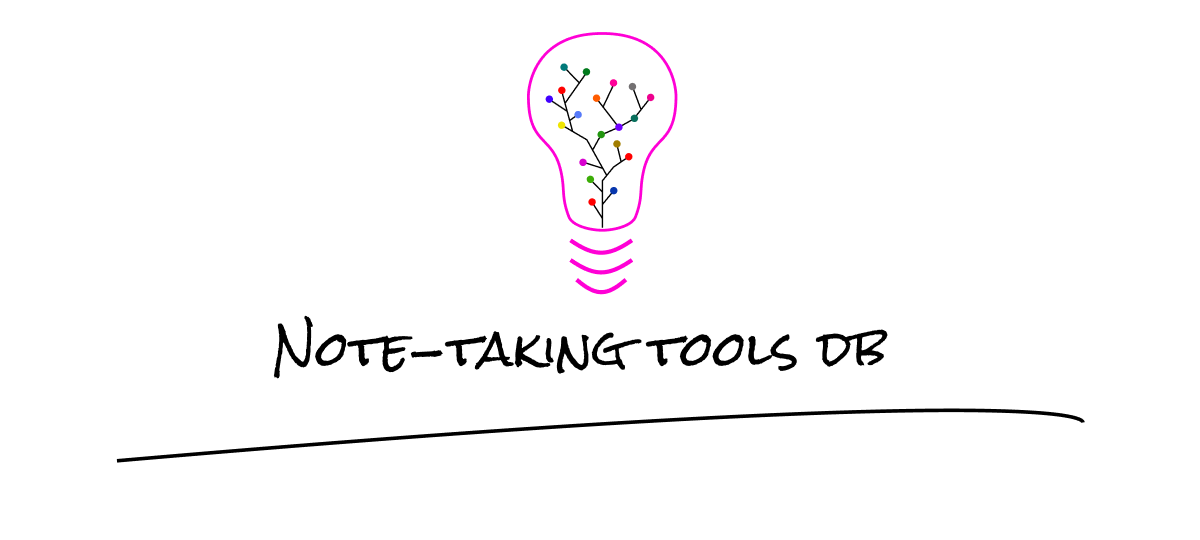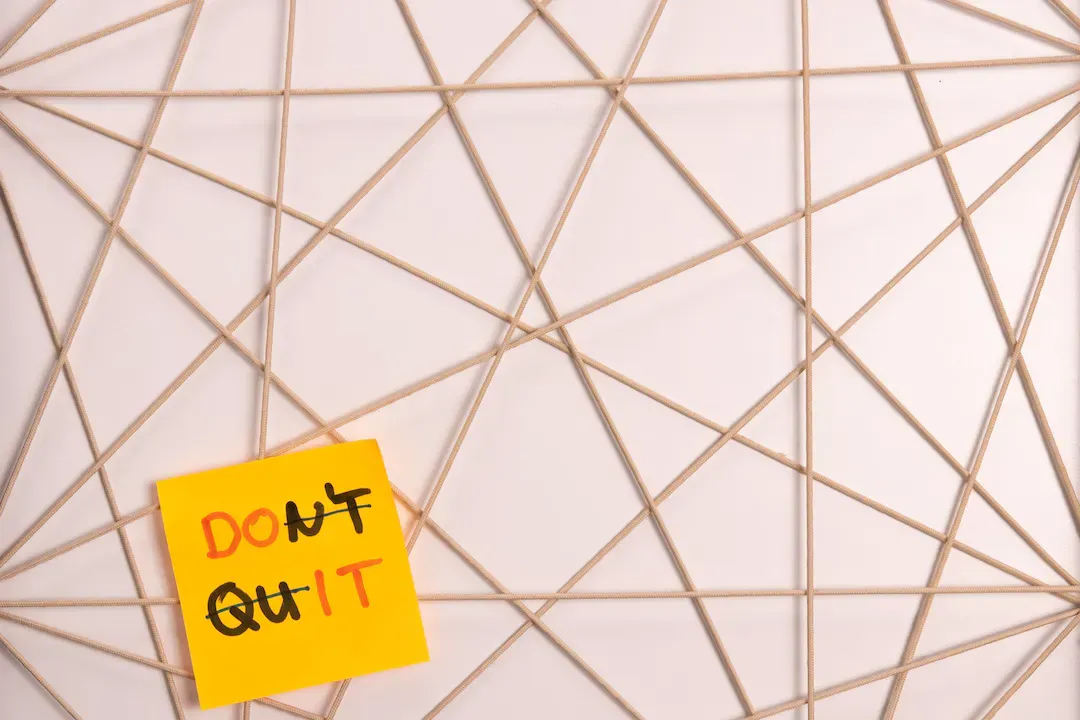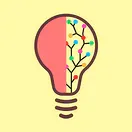Don't start exploring Personal Knowledge Management without reading this first
Essential insights and foundational Personal Knowledge Management (PKM) principles you need to know before you start.

In this article, I want to share important ideas to consider before diving deep into Personal Knowledge Management.
Introduction
In previous articles, I have already discussed the main benefits of Personal Knowledge Management (PKM) and various techniques/methods. Although there is more to know, I believe that it's important to consider different things before spending too much time designing and building your own PKM system. These considerations will help you establish a solid foundation for effective Personal Knowledge Management.
Have clear goals and objectives
Just like any project, diving into PKM requires having clear goals and objectives. Without those, you might just add needless complexity to your life and new time sinks that you don't really benefit from.
Ask yourself the following questions:
- What problems do I face?
- Why do I need Personal Knowledge Management?
- What problems will PKM help me solve?
- Are those problems annoying enough for me to spend time learning about PKM?
Exploring those questions will help you understand your true motivations for diving into PKM. In some cases, it might help you save some time to focus on more important problems.
Know how you best learn
Knowing about your learning style and how you best learn is also important. It's a topic I've touched on before:

If you know what works for you, do you think PKM could help you improve/accelerate your learning?
Personal Knowledge Management is a wonderful tool to learn and think deeply about the topics you care about, but it's certainly not for everyone.
Avoid information overload
Once some people dive into PKM, they have a tendency to try and become learning machine. They capture information everywhere about everything. They highlight books and articles, create tons of bookmarks, save tons of PDF files, and think they're getting ahead of the crowd. In reality, many of them are just having fun, procrastinating and hoarding information.
Information overload is a real danger, which we are all subject to. In fact, we all need less noise and more signal in our lives. A solid PKM system can help you make progress, but misusing it can lead to real headaches and little progress.
Before you dive into PKM, review and improve your current way of filtering and exploring information. Train your brain to recognize valuable and credible sources. Filter out what does not align with your goals, and ignore everything but what helps you move forward.
Check out the following article if you're curious about this:

Understand that PKM will require time and efforts, and set realistic expectations
PKM is no silver bullet. It takes time and effort to create leverage with a PKM system. There's no free lunch. So consider the time you have available in your life before you embark on a PKM journey, and set realistic expectations.
I have invested hundreds of hours into my own system, and although I do find it incredibly valuable, it has still cost me a ton of time and efforts. If you do invest time in PKM, note-taking and note-making, then make sure you leverage your system to make progress in your life, work and/or projects.
Create a map of your information storage systems
If you're convinced that PKM can add value to your life and goals, then it's a good idea to create a "map" of your information landscape. List all the places where you currently store your information/knowledge.
Some examples:
- Google Drive/Microsoft OneDrive/Apple iCloud, ...
- File system
- NAS
- Note-taking tools (e.g., OneNote, Roam, Obsidian, Apple notes, etc)
- Kindle highlights
- Research documents (e.g., Zotero)
- Bookmarks
- Paper
- ...
The clearer your information "landscape" is before you start, the easier it will be for you to design, build and leverage your future PKM system.
Consider regrouping your information and organizing it
Consider regrouping information in as few places as possible in order to simplify your information landscape and your processes. In general, leaner is better.
The more information storage systems, the more complex your overall system is. To design a solid PKM system, it's best to simplify as much as you can (more on this later).
Ideally, when regrouping your information, you should try to organize everything using the same system. I personally recommend Tiago Forte's PARA method. I wrote an article explaining how it works: https://www.dsebastien.net/2022-04-26-para/

The more consistent your approach is, the easier it will be for you to get value out of your future PKM system.
Start small, keep things simple and iterate
When you dive into PKM, you might encounter many buzzwords, methods, techniques and organization system. Refrain from exploring all those right away. Start small, keep things simple, and iterate.
Don't overthink choosing your tools, organization system and techniques. Introduce those if and when you need them. If you feel overwhelmed, then it may be that you have introduced too much complexity at once. If you feel lost, then maybe you need some more organization. If you feel too much friction when taking notes, then maybe the tool you've started with is not the right one for you.
At a minimum, you need a note-taking application. In general, I recommend people to give Obsidian a try, along with my starter kit. It strikes a great balance between simplicity and power. It's easy to get started with it, and it supports advanced scenarios and automation for power users. Many of my customers have adopted it and are quite happy with where they are now.

Avoid needless pressure
As I've mentioned earlier, adopting PKM can be time-consuming, even if very rewarding. Give yourself time. Don't put needless pressure on your shoulders to overdo it. Take a few notes here and there. Focus on making it a habit rather than forcing yourself to do it all the time. Otherwise, you risk getting bored/tired/overwhelmed, and you might abandon the practice before you reap the benefits.
Keep your notes in one place
Regrouping all of your notes in one place is a great idea. Don't try to isolate personal and professional notes unless you really need to (e.g., for security reasons). Don't create separate knowledge bases for different topics. When all your notes are in a single place, everything is easier:
- You can link different topics together
- You can reorganize everything easily
- You can manage everything in the same way without friction
- ...
Ideally, if you take notes on paper, do consider making those digital as part of your workflow. Digital notes have many advantages over paper ones, even though some people like paper-based Zettelkasten systems and are happy with those.
Create Atomic Notes
Beginner note-takers tend to create long notes. Long notes are sometimes valuable, but most can be split up in many shorter notes. Short notes are usually better for knowledge management. They can be linked together more easily and more clearly. They tend to be easier to read, understand, review, organize, find back, and improve.
Check out my earlier article on this topic: https://www.dsebastien.net/the-value-of-atomic-notes/

Avoid considering your notes as final. Write Evergreen Notes
When you write a note, consider it as a draft forever. Never hesitate to update or remove existing notes. The world changes all the time, your knowledge evolves, and your notes only reflect your thinking at a given point in time. Each note is bound to become outdated/useless at some point: https://www.dsebastien.net/continuous-note-taking/

Embrace the ideas of continuous improvement and lifelong learning.
Consider journaling
I've found journaling to be both one of the easiest habits to acquire and one of the most valuable in my life. And it's probably simpler and more useful than you believe.
Writing a journal can be a great starting point for your PKM journey. Capture what you learn, what you find interesting/inspiring/useful, what you think, what you feel, and more. All of those notes can later become separate (and ideally atomic!) notes.
Check out my articles on journaling to learn more:




Consider performing periodic reviews
When you embark on your PKM journey, you might start creating more and more notes each week. If you don't regularly review your creations, you might quickly feel overwhelmed. To get the best out of your efforts, consider introducing periodic reviews in your rituals. At least once a week, take some time to revisit your notes, organize them, link them with other ones, etc:

Be mindful of data privacy and security
When you pick your tools, never forget about data privacy and security. This is a complex topic and it deserves its own article(s), but here are some points to consider:
- Where will your data be stored?
- Will your data be protected? If so, how?
- What will happen if the company behind your tools go bankrupt?
- Will your data be backed up regularly? If so, will you be able to restore your data easily?
- Will your data be versioned? Will you be able to restore a specific version of a file?
- Who will have access to your data?
- ...
Learn more about tagging and metadata
Personal Knowledge Management systems rely a lot on tagging and metadata. When you take or make notes, you should probably invest some time in tagging the information properly, and add relevant metadata: https://www.dsebastien.net/2022-05-17-why-and-how-to-tag-notes-in-your-pkm/

Tags and metadata enable finding the information you need more easily when you need it, and it's critical to maximize usefulness.
On the other hand, metadata enables better organizing information and automating certain operations, which can save you a ton of time.
Consider buying a ready-made system
When you start your journey, you will without a doubt feel a bit lost. How to organize your knowledge, notes, files. How to do X or Y, which application to use, which plugins to install, how to configure those, etc. There are endless new things to discover.
Fear not. There are many ready-made systems, templates and courses out there. I'm biased as I am the creator of one of those, but I can only recommend the Obsidian Starter Kit (assuming you've chosen Obsidian) and the accompanying Obsidian Starter Course. And if you're not using Obsidian, then you might want to take a look at the PKM Library. It contains thousands of resources to help you find your way.
Find a coach
If you're in a real hurry and/or need tailored guidance, then your best bet is to find a coach. There are only a few PKM coaches out there, but you're in luck, I'm one of them. There's also Bianca Pereira, who focuses on researchers.
Join a community
When you embark on your PKM journey, it's best to be able to discuss with other people facing or having faced the same challenges as you.
Consider joining a community such as our PKM community: https://www.dsebastien.net/2021-11-12-personal-knowledge-management-community/

About Sébastien
I'm Sébastien Dubois, and I'm on a mission to help knowledge workers escape information overload. After 20+ years in IT and seeing too many brilliant minds drowning in digital chaos, I've decided to help people build systems that actually work. Through the Knowii Community, my courses, products & services and my Website, I share practical and battle-tested systems. You can follow me on X 🐦 and on BlueSky 🦋.
I am an author, founder, and coach. I write books and articles about Knowledge Work, Personal Knowledge Management, Note-taking, Lifelong Learning, Personal Organization, and Zen Productivity. I also craft lovely digital products.
If you want to follow my work, then become a member and join our community.
Ready to get to the next level?
If you're tired of information overwhelm and ready to build a reliable knowledge system:
- 🎯 Join Knowii and get access to my complete knowledge transformation system
- 📚 Take the Course and Master Knowledge Management
- 🚀 Start with a Rock-solid System: the Obsidian Starter Kit
- 🦉 Get Personal Coaching: Work with me 1-on-1
- 🛒 Check out my other products and services. These will give you a rock-solid starting point for your note-taking and Knowledge Management efforts






